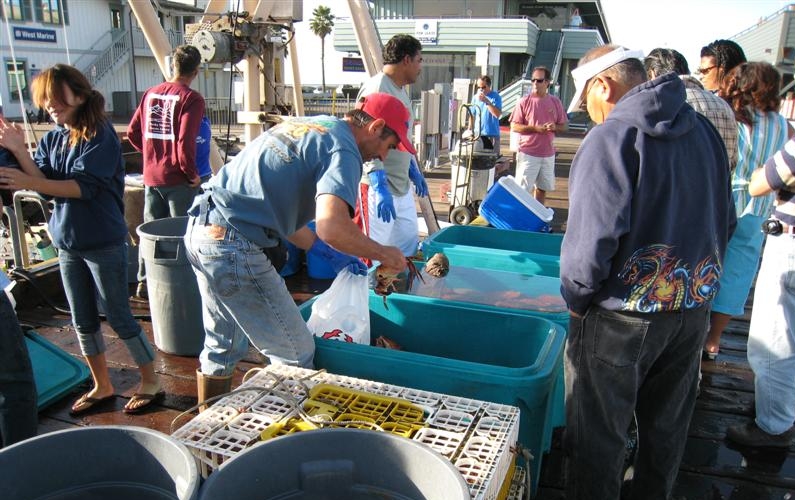
Tips for Alternative Marketing Success
To succeed in alternative marketing, fishermen have to do more than provide a high quality product. They also need to spend time and effort on making it work for their customers, as well as themselves. Balancing these needs is critical for successfully marketing a product while maintaining personal well-being.
Making it Work for Your Customers
Building relationships with customers by maintaining communication and being responsive to them takes time and patience, but it can enhance the success of an alternative market by:
- Identifying ways to improve products and services
- Increasing customer satisfaction
- Increasing customer loyalty
Fishermen have found that the following strategies greatly improve their relationships with their customers, and thus the success of their alternative marketing:
Maintaining regular communication with customers
Provide updates on fishing and marketing efforts via direct and web-based communication to build connections with customers. Tell your story to enrich your relationship with your customers (see Promoting Your Product).
Maintaining face-to-face communication with customers
Don’t rely solely on a web presence. Talk with your customers from time to time to maintain a direct connection with them.
Responding quickly to customer requests
Even if you can’t meet their expectations and needs, communicate this to customers so they know they are not being ignored. This shows a willingness to respond to their needs, thereby increasing customer satisfaction and, often, loyalty.
Incorporating input from customers to improve your alternative market
For example, if you use a community supported fishery (CSF) to market your catch, offer smaller shares to address the needs of single- or two-person households, thereby expanding your customer base.
Handling customer discontent in a professional manner
This point might be obvious, but it can be hard to do when having a difficult day.
If you are going to keep 'em, you will need to please 'em.
—Fishermen's Direct Marketing Manual (2007)
Making it work for you
Keeping customers satisfied is critical for maintaining consistent sales, but a fisherman also should consider his/her needs when setting up and/or considering changes to an alternative market. Keeping the business manageable is necessary for maintaining one's health and happiness, as well as a viable operation.
The following strategies have helped fishermen improve their own satisfaction and success with alternative marketing:
Being realistic about the demands (time, energy, financial)
Some fishermen have formed co-ops or other types of partnerships to share equipment and expenses. They also have sought help from others (see next item) who have expertise and time that they lack.
Getting help with fishing and/or marketing activities
Many fishermen have found it very difficult to run both their fishing and marketing operations. They often rely on their spouse/partner and/or other family members to do part or all of the marketing activities, hire an assistant, or partner with students or local groups (e.g., fishing organizations, NGOs) that are able to provide free or low-cost assistance.
Keeping initial efforts simple, and considering quality of life
An alternative market can be expanded at any time, but it requires resources, capital and time that could go toward other aspects of one's life.
Switching from one type of alternative market to another
Many fishermen have started with one type of alternative market (e.g., fishermen’s/farmers’ market) and then changed to another type of market (e.g., eList, CSF) to better fit their fishing operation, lifestyle and/or customer needs.
Using a combination of market types
Often fishermen market their catch through a combination of traditional and alternative markets. For example, they may deliver a portion of the catch to their traditional buyer, with the remainder going to customers served through one or two restaurants and a buying club. A combination of markets can be demanding, but also provides flexibility and options for scheduling and time spent with customers.